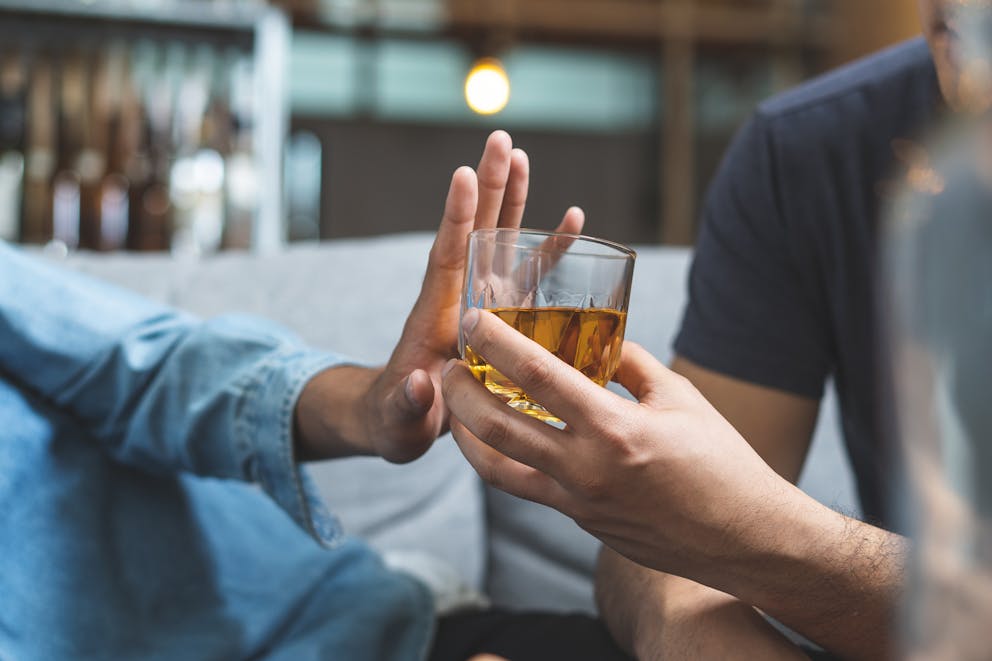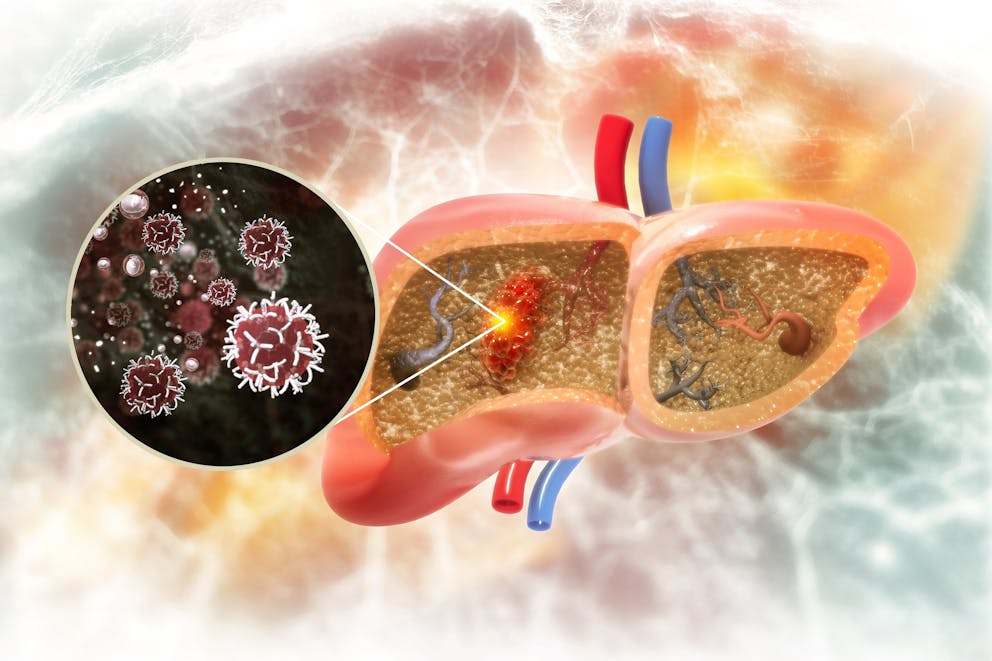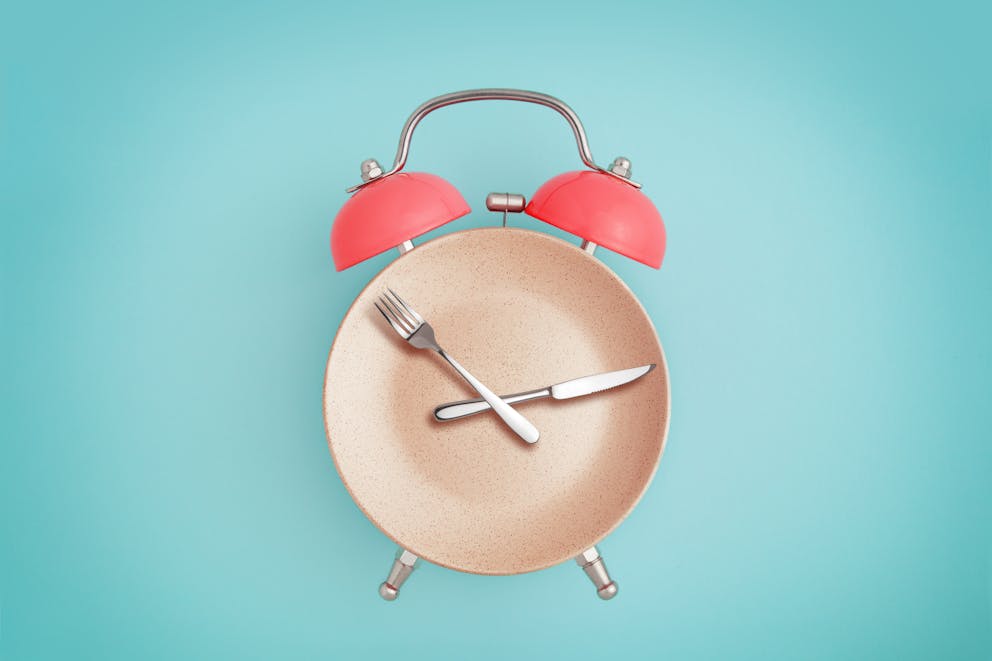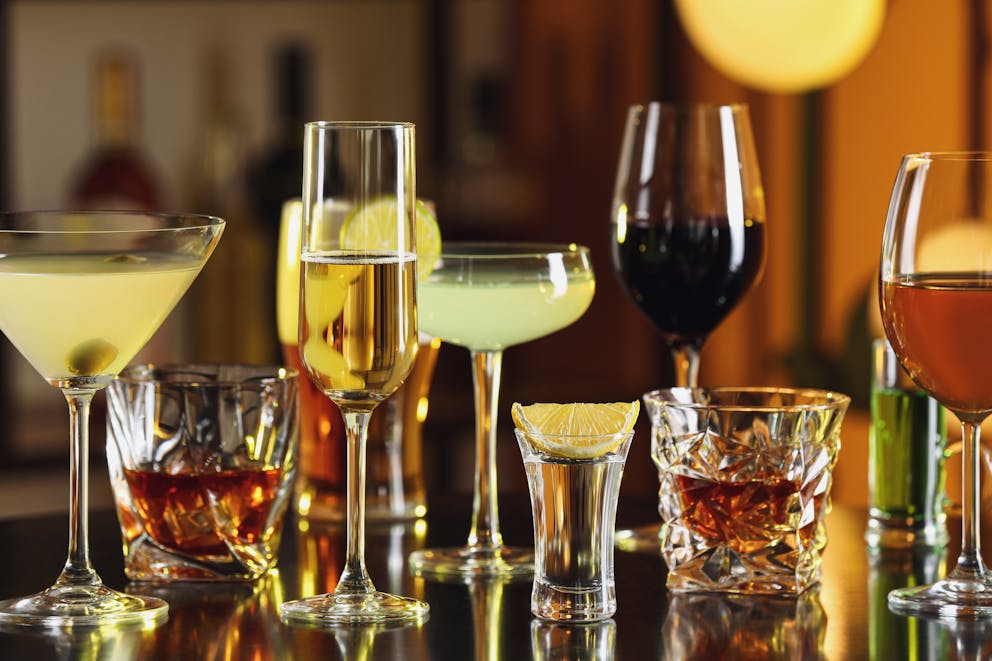How Long to Get Back into Ketosis after Drinking Alcohol?

How to Read Your Body
Learn to recognize common symptoms and uncover their underlying health issues
Understand the signs of nutrient deficiencies to manage your health
Explore the four metabolic body types and the core factors that influence them
Interpret your body's signals from head to toe to identify potential health concerns

How to Read Your Body
Learn to recognize common symptoms and uncover their underlying health issues
Understand the signs of nutrient deficiencies to manage your health
Explore the four metabolic body types and the core factors that influence them
Interpret your body's signals from head to toe to identify potential health concerns

How to Read Your Body
Learn to recognize common symptoms and uncover their underlying health issues
Understand the signs of nutrient deficiencies to manage your health
Explore the four metabolic body types and the core factors that influence them
Interpret your body's signals from head to toe to identify potential health concerns

How to Read Your Body
Learn to recognize common symptoms and uncover their underlying health issues
Understand the signs of nutrient deficiencies to manage your health
Explore the four metabolic body types and the core factors that influence them
Interpret your body's signals from head to toe to identify potential health concerns

How to Read Your Body
Learn to recognize common symptoms and uncover their underlying health issues
Understand the signs of nutrient deficiencies to manage your health
Explore the four metabolic body types and the core factors that influence them
Interpret your body's signals from head to toe to identify potential health concerns

How to Read Your Body
Learn to recognize common symptoms and uncover their underlying health issues
Understand the signs of nutrient deficiencies to manage your health
Explore the four metabolic body types and the core factors that influence them
Interpret your body's signals from head to toe to identify potential health concerns

How to Read Your Body
Learn to recognize common symptoms and uncover their underlying health issues
Understand the signs of nutrient deficiencies to manage your health
Explore the four metabolic body types and the core factors that influence them
Interpret your body's signals from head to toe to identify potential health concerns

How to Read Your Body
Learn to recognize common symptoms and uncover their underlying health issues
Understand the signs of nutrient deficiencies to manage your health
Explore the four metabolic body types and the core factors that influence them
Interpret your body's signals from head to toe to identify potential health concerns

How to Read Your Body
Learn to recognize common symptoms and uncover their underlying health issues
Understand the signs of nutrient deficiencies to manage your health
Explore the four metabolic body types and the core factors that influence them
Interpret your body's signals from head to toe to identify potential health concerns

How to Read Your Body
Learn to recognize common symptoms and uncover their underlying health issues
Understand the signs of nutrient deficiencies to manage your health
Explore the four metabolic body types and the core factors that influence them
Interpret your body's signals from head to toe to identify potential health concerns

How to Read Your Body
Learn to recognize common symptoms and uncover their underlying health issues
Understand the signs of nutrient deficiencies to manage your health
Explore the four metabolic body types and the core factors that influence them
Interpret your body's signals from head to toe to identify potential health concerns

How to Read Your Body
Learn to recognize common symptoms and uncover their underlying health issues
Understand the signs of nutrient deficiencies to manage your health
Explore the four metabolic body types and the core factors that influence them
Interpret your body's signals from head to toe to identify potential health concerns

How to Read Your Body
Learn to recognize common symptoms and uncover their underlying health issues
Understand the signs of nutrient deficiencies to manage your health
Explore the four metabolic body types and the core factors that influence them
Interpret your body's signals from head to toe to identify potential health concerns

How to Read Your Body
Learn to recognize common symptoms and uncover their underlying health issues
Understand the signs of nutrient deficiencies to manage your health
Explore the four metabolic body types and the core factors that influence them
Interpret your body's signals from head to toe to identify potential health concerns

How to Read Your Body
Learn to recognize common symptoms and uncover their underlying health issues
Understand the signs of nutrient deficiencies to manage your health
Explore the four metabolic body types and the core factors that influence them
Interpret your body's signals from head to toe to identify potential health concerns

Keto vs. Non-Keto
Quickly compare keto-friendly foods with non-keto options for easy reference
Use this wallet card to make informed food choices while shopping or dining out
Identify fake keto foods and ingredients that you should avoid
Simplify decision-making with clear, practical guidelines

Keto vs. Non-Keto
Quickly compare keto-friendly foods with non-keto options for easy reference
Use this wallet card to make informed food choices while shopping or dining out
Identify fake keto foods and ingredients that you should avoid
Simplify decision-making with clear, practical guidelines

Keto vs. Non-Keto
Quickly compare keto-friendly foods with non-keto options for easy reference
Use this wallet card to make informed food choices while shopping or dining out
Identify fake keto foods and ingredients that you should avoid
Simplify decision-making with clear, practical guidelines

Keto vs. Non-Keto
Quickly compare keto-friendly foods with non-keto options for easy reference
Use this wallet card to make informed food choices while shopping or dining out
Identify fake keto foods and ingredients that you should avoid
Simplify decision-making with clear, practical guidelines

Keto vs. Non-Keto
Quickly compare keto-friendly foods with non-keto options for easy reference
Use this wallet card to make informed food choices while shopping or dining out
Identify fake keto foods and ingredients that you should avoid
Simplify decision-making with clear, practical guidelines

Keto vs. Non-Keto
Quickly compare keto-friendly foods with non-keto options for easy reference
Use this wallet card to make informed food choices while shopping or dining out
Identify fake keto foods and ingredients that you should avoid
Simplify decision-making with clear, practical guidelines

Keto vs. Non-Keto
Quickly compare keto-friendly foods with non-keto options for easy reference
Use this wallet card to make informed food choices while shopping or dining out
Identify fake keto foods and ingredients that you should avoid
Simplify decision-making with clear, practical guidelines

Keto vs. Non-Keto
Quickly compare keto-friendly foods with non-keto options for easy reference
Use this wallet card to make informed food choices while shopping or dining out
Identify fake keto foods and ingredients that you should avoid
Simplify decision-making with clear, practical guidelines

Keto vs. Non-Keto
Quickly compare keto-friendly foods with non-keto options for easy reference
Use this wallet card to make informed food choices while shopping or dining out
Identify fake keto foods and ingredients that you should avoid
Simplify decision-making with clear, practical guidelines

Keto vs. Non-Keto
Quickly compare keto-friendly foods with non-keto options for easy reference
Use this wallet card to make informed food choices while shopping or dining out
Identify fake keto foods and ingredients that you should avoid
Simplify decision-making with clear, practical guidelines

Keto vs. Non-Keto
Quickly compare keto-friendly foods with non-keto options for easy reference
Use this wallet card to make informed food choices while shopping or dining out
Identify fake keto foods and ingredients that you should avoid
Simplify decision-making with clear, practical guidelines

Keto vs. Non-Keto
Quickly compare keto-friendly foods with non-keto options for easy reference
Use this wallet card to make informed food choices while shopping or dining out
Identify fake keto foods and ingredients that you should avoid
Simplify decision-making with clear, practical guidelines

Keto vs. Non-Keto
Quickly compare keto-friendly foods with non-keto options for easy reference
Use this wallet card to make informed food choices while shopping or dining out
Identify fake keto foods and ingredients that you should avoid
Simplify decision-making with clear, practical guidelines

Keto vs. Non-Keto
Quickly compare keto-friendly foods with non-keto options for easy reference
Use this wallet card to make informed food choices while shopping or dining out
Identify fake keto foods and ingredients that you should avoid
Simplify decision-making with clear, practical guidelines

Keto vs. Non-Keto
Quickly compare keto-friendly foods with non-keto options for easy reference
Use this wallet card to make informed food choices while shopping or dining out
Identify fake keto foods and ingredients that you should avoid
Simplify decision-making with clear, practical guidelines
Although alcohol has no carbs, it’s a toxin, and the liver prioritizes the detoxification of ethanol over other metabolic functions, which inhibits fat-burning and ketosis.
How long it takes to get back into ketosis after drinking alcohol depends on how much alcohol you drink and how quickly your liver detoxifies ethanol. However, it typically takes between 48 and 72 hours to restart ketosis after consuming alcohol.
Learn about the impact of ethanol on your overall health and why alcohol counteracts the many health benefits of the keto diet and intermittent fasting.
Does alcohol contain carbs?
While pure alcohol, or ethanol, is carb-free, most alcoholic beverages contain carbs.
Ethanol is typically made by fermenting high-carb grains or fruits such as sugar cane and grapes. However, not all carbohydrates and sugars are broken down during the fermentation process, leaving residual carbs in the final product.
In addition, many types of alcohol are flavored with sugars and syrups or are mixed with sugary soft drinks and fruit juices.
Here is the average carb content of common alcoholic beverages:
Beer: 10 to 15 grams per 12-ounce (355 ml) serving
Wine: 2 to 4 grams per 5-ounce (148 ml) serving
Champagne: 3 to 6 grams per 5-ounce serving
Margarita: 19 grams per 5-ounce serving
Gin and tonic: 25 grams per 8-ounce (240 ml) serving
Bloody Mary: 15 grams per 8-ounce serving
Liquor: 10 to 20 grams per 1-ounce (30 ml) serving
Consuming alcoholic drinks can stop you from achieving successful keto dieting results—even if they aren’t high-carb.
Can alcohol kick you out of ketosis?
Yes, drinking alcohol affects your metabolism and can potentially kick you out of ketosis.
While ethanol doesn't contain carbohydrates and technically won't impact your blood glucose levels, alcohol still affects ketone production.
The body perceives ethanol as a toxin, and the liver prioritizes alcohol detoxification over most other metabolic processes.
Research published in The Journal of Hepatology found that ethanol inhibits certain liver enzymes needed to oxidize fatty acids. Impaired fat burning means that your liver can’t produce ketones, pushing you out of ketosis quickly.
In addition, alcohol can trigger powerful carb and sugar cravings while impairing judgment and self-control, which may lead to overeating carb-rich meals and exceeding your daily net carb count.
This explains why alcohol consumption interferes with ketosis, slows down the process of losing weight, and negates many of the metabolic benefits of the ketogenic diet.

How long to get back into ketosis after drinking alcohol?
How long it takes to get back into ketosis after drinking alcohol depends on several factors, including the type and quantity of alcohol consumed, how flexible your metabolism is, and your overall dietary habits.
Alcohol is typically cleared from the body within a few hours, but that doesn’t mean your body re-enters ketosis straightaway.
Alcoholic drinks are often high in carbs and spike blood glucose and insulin levels. It can take your body a considerable time to deplete elevated blood sugar and lower insulin levels to switch your metabolism back into a fat-burning state.
While it’s difficult to predict an exact timeframe, it typically takes 48 to 72 hours after drinking alcohol to resume ketone production and restart ketosis.
To get back into ketosis faster, it’s best to strictly limit your net carb intake, drink plenty of water, engage in physical activity, and consume healthy fats and medium-chain triglycerides (MCTs).
 Six reasons to avoid alcohol
Six reasons to avoid alcohol
Despite impressive efforts made by the alcohol industry to sell alcohol as a heart-healthy and health-promoting beverage, the scientific evidence largely agrees that alcohol has no health benefits.
Research published in Nature Medicine suggests, “Alcohol consumption is a major risk factor for poor physical and mental health, accounting for about 3 million deaths and over 130 million disability-adjusted life years worldwide.”
Regular alcohol consumption has been linked to an increased risk of several serious health conditions, including liver cirrhosis, stroke, heart disease, cancers, cataracts, gastric ulcers, and mental health conditions.
In addition, alcohol can be highly addictive, and excessive or prolonged alcohol use can lead to alcohol dependency.
If you are concerned about your alcohol consumption, it’s crucial to consult with a healthcare professional, therapist, or addiction counselor to assess your situation and find appropriate treatment options.
Here are six reasons why it’s best to avoid alcohol.
1. Premature death
A study published in Nature found that non-drinkers had an average lifespan of almost seven years more than regular drinkers.
Ethanol is a toxic compound that impairs the normal function of cells, tissues, and organs. Regular alcohol consumption interferes with countless cellular processes, causes liver damage, increases the risk of DNA damage and cancer, and is linked to high blood pressure and heart disease.
2. Impaired liver health
Alcohol is primarily metabolized in the liver, which generates toxic byproducts. One is acetaldehyde, a harmful compound that can trigger inflammation and impact liver cell function.
Regular alcohol consumption can lead to chronic liver inflammation and impaired energy-making processes and may cause fatty liver disease, alcoholic hepatitis, and cirrhosis.

3. Increased cancer risk
Alcohol is highly toxic and classified as a carcinogen.
Acetaldehyde can directly damage DNA and inhibits your cell’s ability to repair damaged genetic material. Alcohol increases the risk of several cancers, including breast, prostate, liver, stomach, colon, oral, and esophageal cancer.
4. Nutrient deficiencies
Frequent alcohol use can cause or worsen nutrient deficiencies even if you consume a balanced diet.
Alcohol can damage the lining of the intestines, which impairs the absorption of essential nutrients such as magnesium, calcium, potassium, and zinc.
Alcohol also interferes with B vitamin metabolism, especially folate, vitamin B1, and vitamin B12, which are essential for energy production, nervous system function, and DNA synthesis.
5. Weight gain
Alcohol is high in calories and, at the same time, inhibits the conversion of fats into energy which can lead to the accumulation of liver fat and gaining weight on keto.
Alcohol consumption has been found to negatively impact several crucial physiological systems needed to maintain a healthy weight, including healthy sleep patterns, hormonal balance, and the diversity of the intestinal microflora.
6. Poor sleep
Alcohol significantly disrupts regular sleep cycles, causes fragmented sleep, and suppresses rapid eye movement (REM) sleep, which is vital for cellular repair and recovery.
Sleep deprivation has been linked to obesity, metabolic diseases, weak immune defenses, and hormone imbalances, and may increase your risk of heart disease and cancer.

Can you drink hard liquor while fasting?
Hard liquor, such as rum, gin, vodka, and whiskey, shouldn’t be consumed while fasting.
Although it’s carb-free, ethanol contains seven calories per gram and drinking hard liquor is considered breaking a fast.
Consuming alcohol during your fasting blocks weight loss and inhibits autophagy, a vital process that helps the body to eliminate dysfunctional and damaged cellular components.

Key takeaways
Alcohol inhibits fat burning and can quickly push you out of ketosis, counteracting the many health benefits of the ketogenic diet and intermittent fasting.
How long it takes to get back into ketosis after drinking alcohol depends on how many alcoholic beverages you consume and how efficiently your liver detoxifies ethanol, but it typically takes between 48 and 72 hours to re-enter ketosis.
Alcohol is linked to several adverse health effects, including premature death, poor liver function, nutrient deficiencies, and cancer, and it's best to avoid drinking alcohol as much as possible.
FAQ
1. Does drinking alcohol kick you out of ketosis?
Yes, drinking alcohol can kick you out of ketosis.
Your body perceives ethanol as a poison, and your liver prioritizes alcohol detoxification which stops your metabolism from converting fatty acids into ketones. And, what’s more, alcohol can trigger powerful carb cravings, and you may find it hard to resist enticing carb-rich foods while under the influence.
2. How long does it take to restart ketosis after I drink alcohol?
How long it takes to restart ketosis after you consume alcohol depends on several factors, including the type and amount of alcohol consumed, your metabolic flexibility, detoxification capacities, and overall diet.
However, it's believed that it generally takes 48 to 72 hours to switch back to fat-burning and ketone production.
3. How do you jumpstart ketosis?
You can jumpstart ketosis by consuming coconut oil rich in medium-chain triglycerides (MCTs), strictly limiting your net carb intake to 20 grams per day, and practicing intermittent fasting to deplete blood sugar and glycogen stores.
4. Can I have low-carb alcohol on keto?
Small amounts of low-carb alcohol on keto can be okay and may not push you out of ketosis. However, it’s important to remember that alcohol has many detrimental health effects and inhibits fat burning, greatly opposing the metabolic benefits of a high-fat diet.
5. Can I have hard liquor while fasting?
It’s not recommended to consume hard liquor while fasting.
Whenever you drink alcohol, your liver can’t break down and metabolize fat which interferes with ketosis and breaks a fast. Drinking any type of alcohol while fasting slows weight loss and inhibits autophagy.
6. Is hard alcohol low-carb?
Hard liquor and spirits are considered low-carb drinks. However, while hard alcohol may not contain carbs, it’s often consumed with high-carb mixers, including soft drinks, fruit juices, or syrups.
7. How many carbs are in alcohol?
How many carbs are in alcohol depends on the type and whether it’s mixed with other beverages.
Beer tends to contain around 15 grams per five-ounce serving, wine typically has between two to four grams per four-ounce serving, and hard liquor mixed with a soft drink can contain as much as 25 grams for an eight-ounce serving. Mixed drinks can contain even more sugar per serving, depending on the ingredients.
Because of their high net carbs, alcoholic drinks are not safe on keto diets.
8. How many glasses of wine can I have while on a keto diet?
How many glasses of wine you can drink while in ketosis depends on the carb content of the wine, your metabolism, and how efficiently your liver detoxifies alcohol.
Dry wine tends to contain around four grams of carbs per serving. While this may fit into your daily carb count, it’s important to remember that ethanol blocks your liver's ability to burn fat, and drinking any amount of wine while in ketosis can interfere with weight loss and opposes the metabolic benefits of a low-carb diet.
9. Does alcohol increase ketosis on a ketogenic diet?
No, alcohol doesn’t increase ketosis. In fact, drinking alcohol inhibits your body’s ability to burn fat and generate ketones, and even small amounts of alcoholic beverages can affect ketosis.
10. How many drinks kick you out of ketosis?
How many drinks it takes to kick you out of ketosis depends on the type and quantity of alcohol consumed, your metabolism, and your detoxification capacities.
While some people may be more resilient to alcohol’s impact on fat-burning, others may be kicked out of ketosis after drinking one alcoholic beverage.
Previous blog
Lower Blood Pressure Simply by Cutting Out SugarTags

Popular
08/21/2024
55K views
02/23/2025
46.3K views
11/18/2024
277.5K views
03/18/2024
11/21/2022





